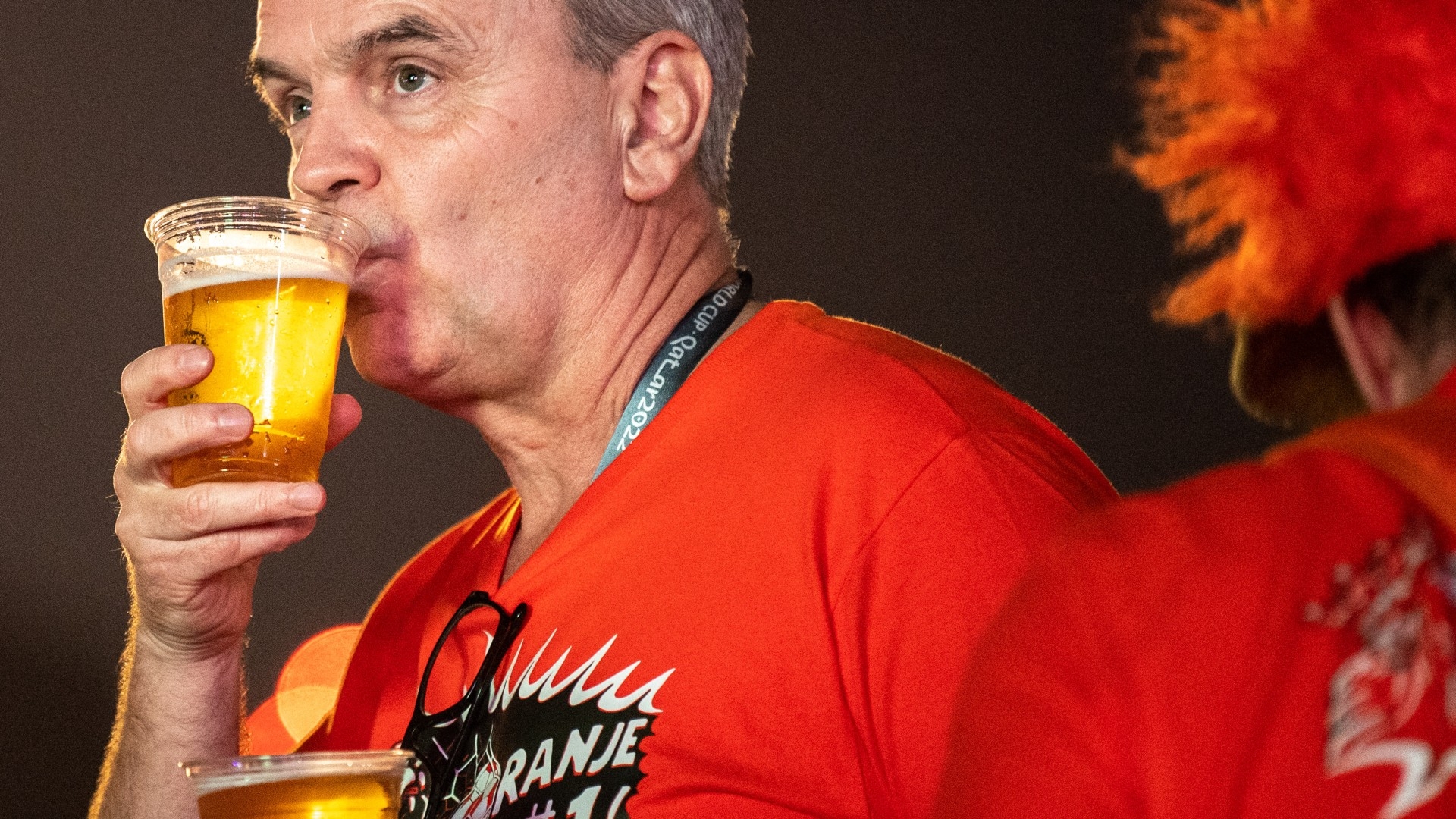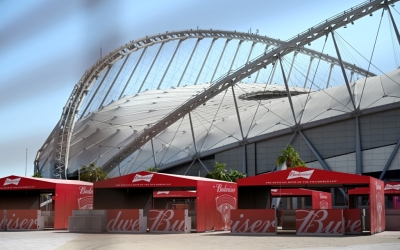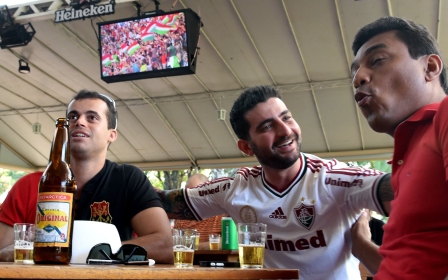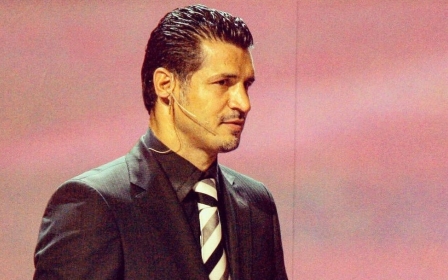Qatar World Cup 2022: Alcohol still available at stadiums for those paying top dollar

Qatar's ban on the sale of alcoholic beverages in the perimeters of World Cup stadiums has a loophole for those willing to shell out thousands of dollars on private suites.
Alcohol will continue to be available in luxury hospitality boxes, where a seat for one match starts at $950, with beer and wine. The price for the same ticket jumps to $9,100 per person for semi-finals and finals.
The alcoholic offerings for luxury boxes go well beyond the limited sale of Budweiser beer that guests would initially be allowed to purchase up to three hours before matches and one hour after in select areas around each stadium.
But the basic programme for spectators paying $3,050 for a single "business" package includes beer, wine, spirits and cocktails, with guests even allowed to belly-up to the bar during half-time.
Fans splurging $4,950 on the top-level Pearl Suite for a single match have access to sommeliers and premium spirits.
Paying $34,300 for 10 matches - including a semifinal and the final - allows guests to bask in guest appearances from celebrities and a six-course "gastronomic showcase", according to Match Hospitality.
Qatar's abrupt change on beer sales is a reality check for fans unaccustomed to buying alcohol in the Gulf region, which is generally reserved for elite areas. Alcohol consumption in public places is illegal in Qatar, and pricy at the licensed hotels and clubs where it can be purchased. A pint of beer can cost $18.
According to a source familiar with Qatar's decision to ban beer sales who spoke to Reuters on condition of anonymity, the move was based on fears of offending fans from the region.
"A larger number of fans are attending from across the Middle East and South Asia, where alcohol doesn't play such a large role in the culture," the source told Reuters.
"The thinking was that, for many fans, the presence of alcohol would not create an enjoyable experience," the source added.
But for the game's big spenders, it doesn’t appear to be a problem.
This article is available in French on Middle East Eye French edition.
Middle East Eye delivers independent and unrivalled coverage and analysis of the Middle East, North Africa and beyond. To learn more about republishing this content and the associated fees, please fill out this form. More about MEE can be found here.




